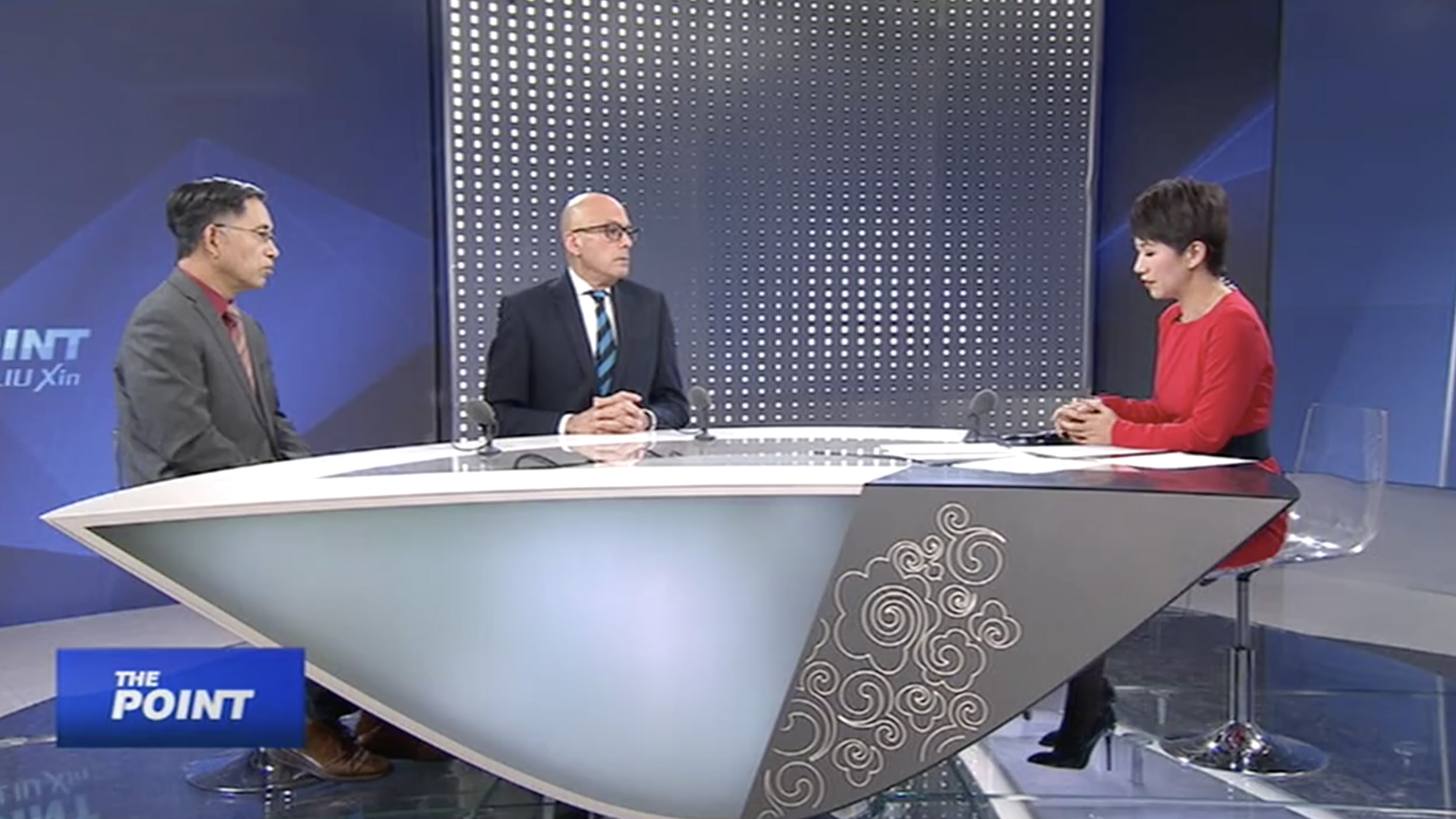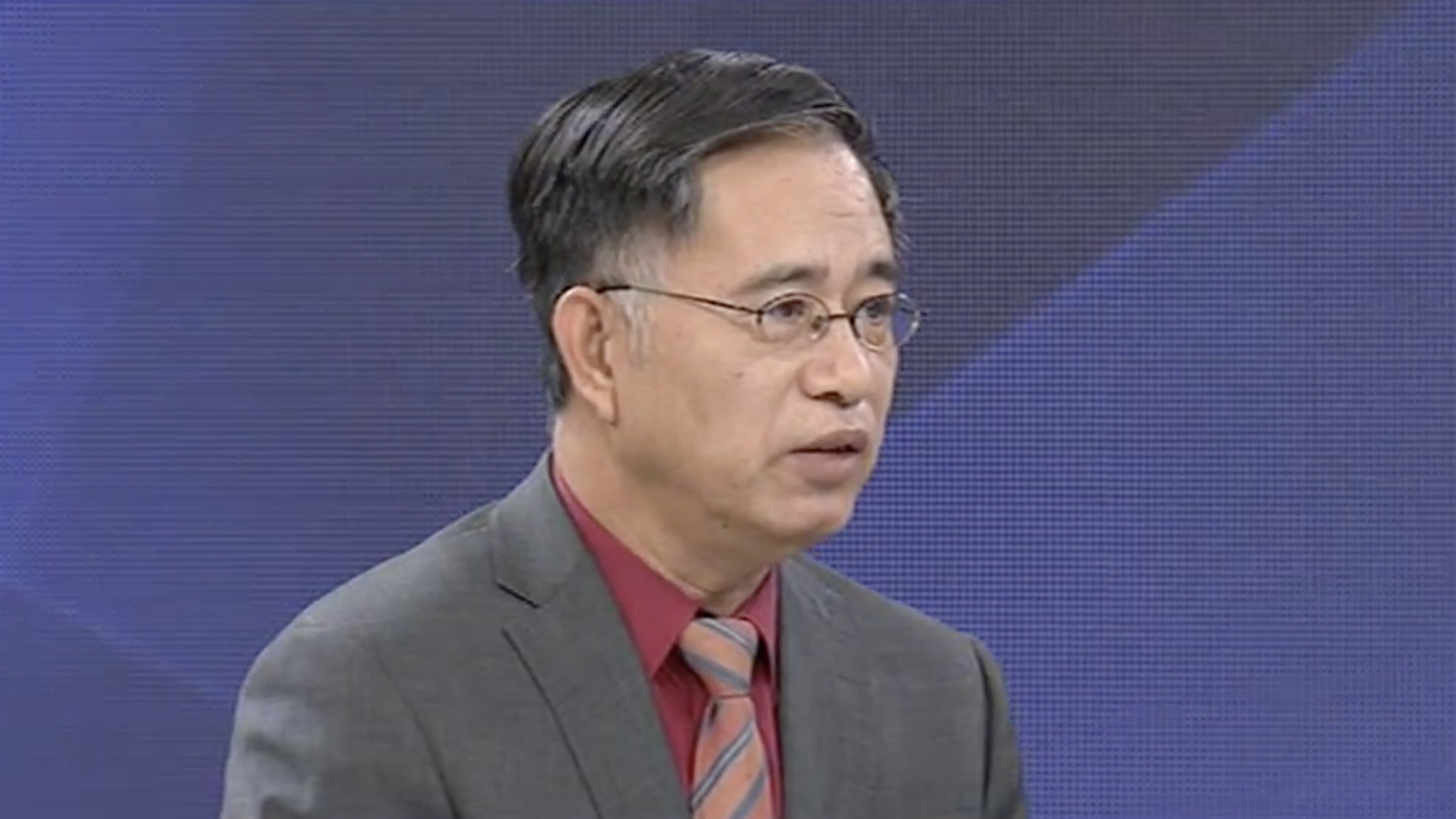
TV Show
21:09, 21-Feb-2019
U.S. shall stop accusing China’s National Intelligence Law
Updated
21:40, 21-Feb-2019
The Point with Liu Xin
00:48

Article 7 of China's National Intelligence Law seems to be "notorious" in the West, especially the U.S. as they claim that it "legitimizes the Chinese government's action to steal data".
Edward Lehman, Managing Director of Lehman Lee & Xu, commented it is very "hypocritical" for the U.S. to say that when they "have somebody like Edward Snowden who said they (U.S. government) have been keeping information and Mark Zuckerberg who admitted capturing and selling data to other people."
On February 16, U.S. Vice President Mike Pence said in his speech at the Munich Security Conference that the U.S. has been very clear with its security partners on the threat posed by Huawei and other Chinese telecom companies, as Chinese law requires them to "provide Beijing's vast security apparatus with access to any data that touches their network or equipment."
Article 7 states that any organizations or individuals should lawfully support, assist and coordinate with the country's intelligence service, and guard the secrecy of the national intelligence work they are aware of.
"Mike Pence completely misread this law," Edward Lehman said.
"This is no differences than what we have in the United States. All this is saying is that China has national public security issues it has to deal with in such a large country and it has the security issues to deal around the world and under civil law context, China has the common law jurisdiction."
00:57

Professor Liu Baocheng from University of International Business and Economics said that the first sentence is absolutely legitimate. Moreover, the second part of the article is "even firmer in protecting consumer interests in terms of information access, privacy, etc." he added.
Following Article 7, Article 8 of China's National Intelligence Law clearly states that the national intelligence service should carry out its work according to the law, respect and protect human rights, and uphold the legal rights and interests of individuals and organizations.
"It outlines a framework for countries and companies to work together in the cybersecurity space," said Edward Lehman, "China has civil law jurisdiction and common law jurisdiction which combine case laws. In this case, China is on the back foot of the U.S. because China published these laws and regulations that are open to even foreigners."
Article 40 of the Constitution of China clearly stipulates that the freedom and privacy of correspondence of citizens of the People's Republic of China are protected by law.
00:54

Geng Shuang, Chinese Foreign Ministry Spokesperson, responded on February 18 that China has not asked and will not ask companies or individuals to collect or provide data, information, and intelligence stored within other countries' territories for the Chinese government by installing "backdoors" or by violating local laws.
Liu Baocheng commented, "If you paint the picture of a person wrong, whatever he does or whatever he says is unbelievable. That's really the intention of those hawkish people against China," he continued. "This reflects their sense of fear or discomfort when they can't stop people from developing technological might."

SITEMAP
Copyright © 2018 CGTN. Beijing ICP prepared NO.16065310-3
Copyright © 2018 CGTN. Beijing ICP prepared NO.16065310-3